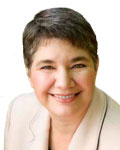When he was growing up in Denver in the ‘60s, Jeff Hart and his fellow Boomers used to say, “Don’t trust the man.” “The man” was politicians, corporations, government, and institutions of all kinds. Then Hart became “the man.” With a twist.
Jeff Hart looks like what kids considered “the man.” He’s middle aged with short grey hair, tanned, with a bit of a success paunch. He and his wife live in a well- maintained brick house on a quiet tree-lined street in Bonnie Brae, one of Denver’s best neighborhoods.
But Boomers (and Hart) did more than mistrust institutions. As Hart said, “Baby Boomers, as a group, felt our job was to fix it.”
Jeff Hart really bought into that.
He thinks his leaning toward changing and fixing things also might have been motivated by his early life as much as by the sentiments of the ’60s. His father was a second-generation dentist.
“Before being a dentist was about making lots of money,” Hart said.
His father would fix people’s teeth even if they couldn’t pay. So community service seems to be a value instilled in him at an early age. Hart also got the impression that his parents didn’t really live up to their potential. He can’t really name how this was communicated, but he felt it.
Hart wants to live up to his.
Working at GAO
Early in his career, he tried to fix things from deep inside. His first job after graduating from the University of Colorado at Denver (cum laude) was for the GAO (Government Accounting Office). Its official description is – an investigative arm of Congress charged with examining matters relating to the receipt and payment of public funds. It’s an internal watchdog.
For that role, the young Jeff Hart was trained in “evaluation methodology, root cause analysis, problem solving, and financial analysis.”

A nuclear warhead, courtesy of U.S. Dept. of Defense.
One of his early projects was for the Department of Energy. His team was supposed to look at two designs for nuclear warheads and recommend one. Did he know much about nuclear warheads? No, but it was a lot of research, analysis, and objective thinking that led them to a decision.
“I always wanted to work on the toughest problems, the biggest and baddest,” Hart said. As if nuclear warheads were not enough.
His desire for big challenges led him to take a job at the EPA (Environmental Protection Agency) in the Inspector General’s Office where he spent 17 years.
The movie that changed his life
But it was a movie that changed his life and set him on a new professional path.
“I went to see Al Gore’s movie. [An Inconvenient Truth, 2006] I had already worked at EPA for about a decade and a half – I was shocked by the movie. I didn’t realize I didn’t know what I didn’t know,” he said.
He had found his biggest, baddest problem.
The day after he saw the movie he contacted Al Gore’s office and asked for a copy. Gore’s folks didn’t give it to him.
“So I figured I’d have to go put together my own presentation. I found a lot of the same photos on the internet, melting glaciers, etc.” He contacted Gore and went on the road with his presentation. Gore’s people got back to him and said they decided to put together a training program for people like him.
Meantime, back at his EPA job he went to his bosses in DC and said I think climate change is a real problem. The higher ups let him do two studies, one on what the EPA was doing about the issue.
“They had voluntary programs – dozens of these programs – Energy Star is one of the most well known,” he said. But Hart found most of the programs were industry partnership programs.
“I believe they were just another form of greenwashing – a way for industries to be perceived as helping with climate change,” he said.
Greenwashing is a form of spin in which green PR or green marketing is deceptively used to promote the perception that an organization’s products, aims or policies are environmentally friendly.[3] (From Wikipedia
Hart decided that EPA was not doing nearly enough. The agency didn’t have a comprehensive plan.
Then and now
Now the environment is not the only thing on his agenda for fixing the “biggest, baddest “problems.
Retired from EPA, he’s been doing some consulting on government ethics (it seems those words can be in the same sentence). His sights are set on campaign finance reform, education, and health care. Who else talks about these things besides politicians?
Indeed, that what he’s become.
Hart is running for State Representative, House District 6 in Colorado. He’ll be one of 65 reps, if he makes it through the primary in June and the general election in November. It’s long haul.
“I want to do a couple of main things – I want to do what I can to help us avoid the most catastrophic results of climate change. To do that I need to do something about big money in politics and then I can do something about education, health care, mental health care – women’s health and reproductive issues – policies what will help the middle class,” Hart said.
Harken back to his early work. He’s into root causes and he believes big money in politics is the basic problem. He’s done his homework and cites a program in Connecticut that has imposed a spending limit, one in California also.
Building on those, he’d like to lead the charge and make Colorado a leader in campaign finance reform.
So even though Jeff Hart may seem like “the man,” his heart lies in the other ’60s mantra – be the fixer.
__________________________________________________________________
For more information, Hart’s website is http://www.JeffHart.org
Story copyright, 2016, by Bojinka Bishop (with photos by Bishop unless otherwise noted.)
If you enjoyed this story, like us on Facebook, and sharing buttons are below. Subscribe to Flying High Solo – go to Subscribe near the top of the right-hand column. Read more – click on People in the navigation bar for other stories about inspiring people and other tabs for stories about living a good and curious life.
See Comments. Click here. Share your ideas and comments. Click here.
Related stories:
- Some people surprise you – she makes homemade laundry soap. Here’s howAfter rebelling against mothers and grandmothers who lived “homemade” and embracing the consumer lifestyle, we’re returning to the simple life....
- What they taught me, 17 lessonsTo date, I’ve interviewed six dynamic solos, living their lives in unique ways. Their approaches to other people, and to their civic, work, and artistic pursuits have taught me valuable lessons about how to live a good life....
- Helping our heroes, our first respondersPeople never get numb to tragedy. Even our first responders, firefighters, EMTs, police officers, and doctors sometimes see things so disturbing they need a way to deal with them. It’s Mary Rollinger’s job to help. But that doesn’t mean it’s easy for her, either....
- Passion for the land ignites activismSolo Elisa Young moved to rural southeast Ohio in the mid-1990s to help take care of her grandmother. She returned to live a sustainable life on a farm that had been in her family for seven generations and where she had spent her childhood summers. Little did she know then...
- Being Jan Ehrlichman – Watergate and beyondIn 1976, Jan was 23, slim, blonde, athletic, a talented pianist, fresh out of Principia College. She’d had a privileged upbringing, she’d even met presidents. To use a phrase popular at the time, the world was her oyster – or should have been....
FlyingHighSolo.com
Celebrating special people, good ideas, and useful actionsSubscribe
Keep on top of what's new – subscribe to Flying High Solo! You'll get a brief email alerting you to new articles. (Your email is safe -- we will not share it with anyone).
What readers are saying
"amazing variety of topics"
"an intelligent, strong, creative, eclectic approach .... that we don't get a chance to read everyday"
"very cool and intelligent"
Highly Recommended
 Bella DePaulo's blog for Psychology Today, "the truth about singlism..." News, analysis, facts, and stories about being single in America
Bella DePaulo's blog for Psychology Today, "the truth about singlism..." News, analysis, facts, and stories about being single in America








